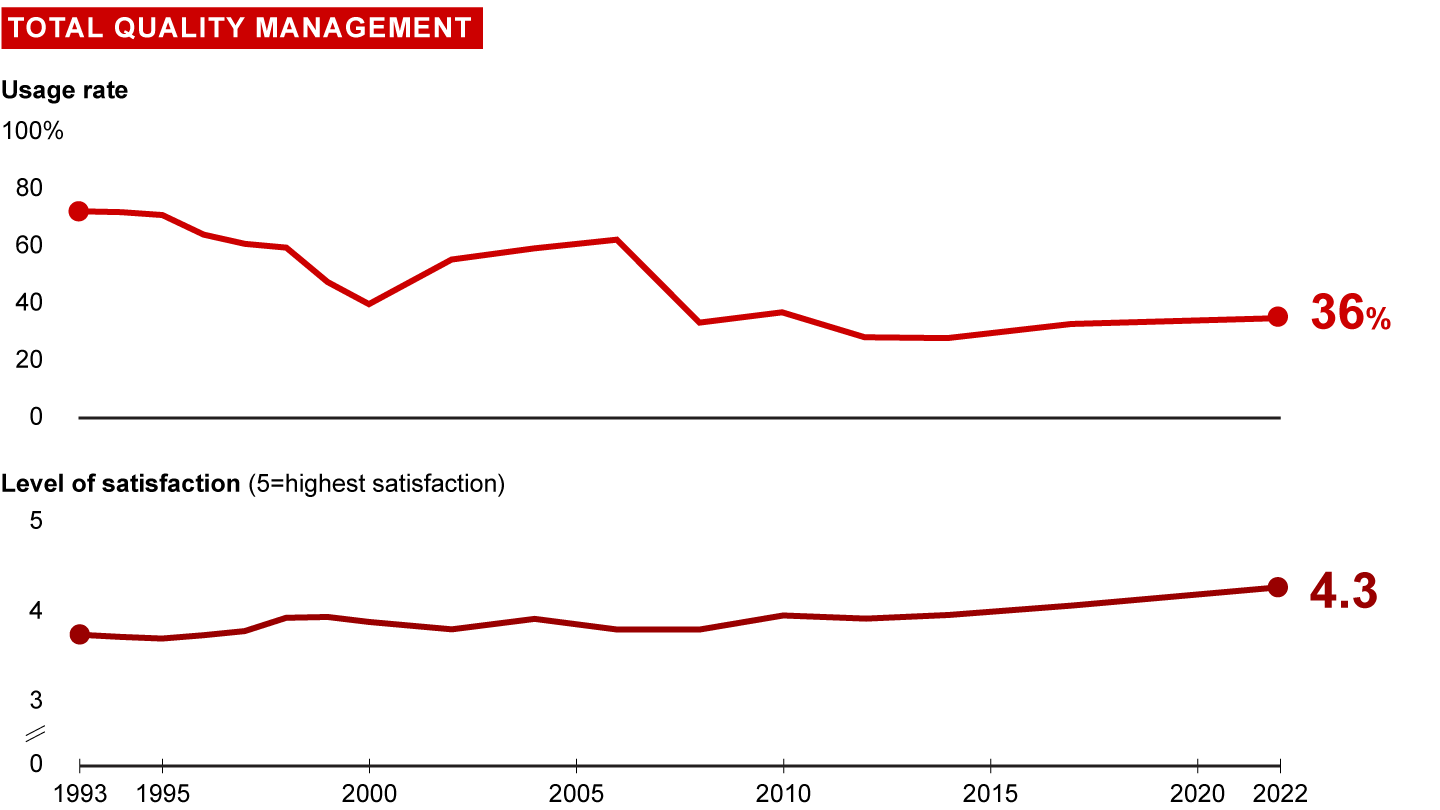Management Tools
What Is Total Quality Management (TQM)?
Total Quality Management (TQM) is an organization-wide, customer-focused mindset and data-driven approach to eliminating, reducing, or preventing errors. Total Quality Management emphasizes a whole-company approach across functions and departments. Senior leadership leads TQM through goal setting, training, and effective communication.


A fundamental part of TQM is assessing and redefining processes, monitoring performance, and using the results to drive further improvements. Improvement ideas should be identified holistically beyond function-specific activities. Each area should feel accountable for the overall quality of the final product or service. This creates a virtuous cycle of continuous improvement that boosts production, customer satisfaction, and profits.
How Is Total Quality Management Implemented?
To succeed, TQM requires companies to:
- Assess current customer satisfaction and demands
- Understand present and future customer needs
- Map the critical processes through which the organization meets its customers’ needs
- Develop solutions to deliver quality
- Identify the key problem areas in processes and work on them until they approach zero-defect levels
- Design products and services that cost-effectively meet or exceed customer needs
- Align the organization to a TQM approach and build key enablers
- Assess current culture and quality management systems
- Identify core values and principles and communicate them across the organization
- Train and coach employees on new processes and problem-solving techniques
- Develop effective measures of product and service quality
- Create incentives linked to quality goals
- Promote a zero-defect philosophy across all activities
- Encourage management to lead by example
- Develop feedback mechanisms to ensure continuous improvement
Related Topics
What Are Common Uses of Total Quality Management?
TQM improves profitability by focusing on quality improvement and addressing associated challenges within an organization.
TQM can be used to:
- Increase productivity
- Lower scrap and rework costs
- Improve product reliability
- Decrease time-to-market cycles
- Decrease customer service problems
- Increase competitive advantage

Management Tools & Trends 2023
On the 30th anniversary of our survey, managers seem surprisingly upbeat.